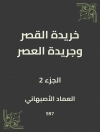A new translation by acclaimed poet Will Stone of the visionary Austrian poet Georg Trakl
Georg Trakl is recognised as one of the most important European poets of the twentieth century. His visionary poetry has influenced not only later poets but also composers, artists and filmmakers. The full measure of Trakl’s genius can be appreciated in this extensive Collected Poems, intuitively translated by poet Will Stone, which features the key collections including the posthumously published Sebastian in Dream, 1915. Supplementary to these are the poems originally published in the literary journal Der Brenner as well as a discerning selection of Trakl’s uncollected work.
Trakl’s trademark tonal qualities, his melancholy stamp, the often apocalyptic but eerily beautiful language gradually infect the reader. His poems are awash with images, symbolic colours and signs; mysterious dream-like figures appear and vanish, and an alternative world is born out of the unconscious. The most sensitive observer of Trakl’s poetry was his contemporary, Rainer Maria Rilke, who concluded: ‘For me, the Trakl poem is an object of sublime existence…’
Georg Trakl (1887-1914) was born in Salzburg, Austria, and spent his youth there. He began writing poetry at age 13 and later became apprentice to a pharmacist in Salzburg, then went on to take a degree in pharmacy at the University of Vienna. Following his father’s death in 1910 Trakl enlisted in the army, eventually working in the military hospital in Innsbruck. With the outbreak of World War I, Trakl volunteered as a medical orderly and attended soldiers at the Eastern Front in Galicia. After the battle of Grodek, he suffered a mental collapse and was confined to a military hospital in Kraków where he died of a cocaine overdose.
Tentang Penulis
Will Stone, born 1966, is a poet, essayist and literary translator. His first poetry collection Glaciation (Salt, 2007), won the international Glen Dimplex Award for poetry in 2008. Shearsman Books has re-published his subsequent critically appraised collections. Will’s poetry translations include To the Silenced – Selected Poems of Georg Trakl (Arc, 2005) Emile Verhaeren Poems (Arc, 2013), Georges Rodenbach Poems (Arc, 2017) and Friedrich Hölderlin’s Life Poetry and Madness by Wilhelm Waiblinger (2018). Pushkin Press published his translation of Montaigne by Stefan Zweig in 2015, Messages from a Lost World – Europe on the Brink by Stefan Zweig in 2016 and The Art of the City – Rome, Florence, Venice by Georg Simmel in September 2018. Encounters and Destinies – A Farewell to Europe by Stefan Zweig and Surrender to Night – Collected Poems of Georg Trakl will be published in 2019. Will has contributed poems, translations, essays and reviews to a range of publications including The London Magazine, The Times Literary Supplement, The Spectator, Apollo Magazine, the RA Magazine, The White Review, Poetry Review and Agenda.












